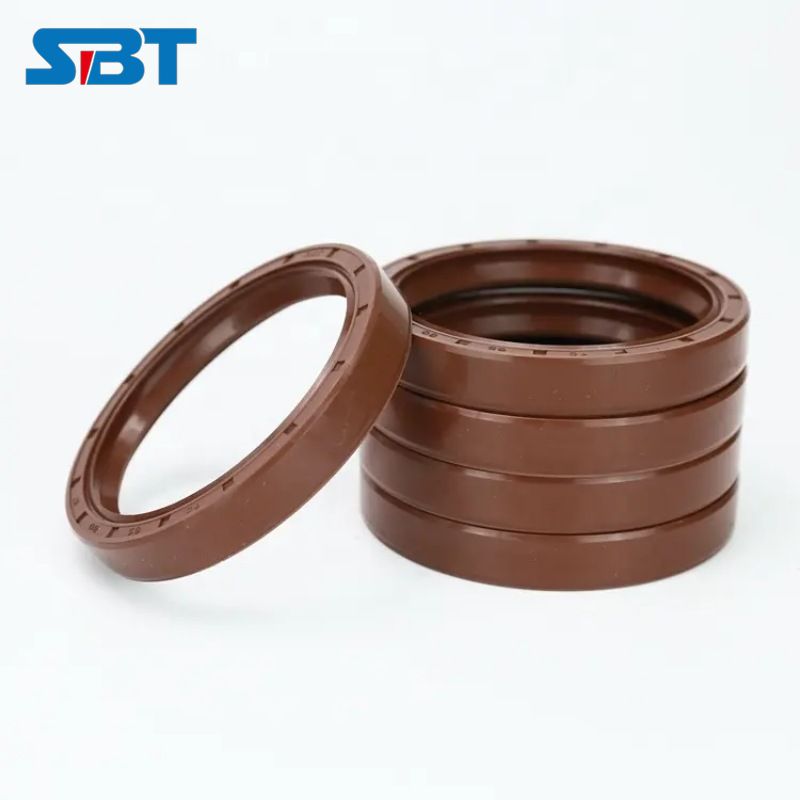What Is the Best Seal for a Rotating Shaft?
In today's article, we will delve into the world of rotating shaft seals and discuss the best options available to ensure optimal performance and efficiency. Rotating shafts are an essential component of various machines and equipment, and the choice of seal can significantly impact their functionality. We understand the importance of finding the most suitable seal for your rotating shaft, and we are here to guide you through the options.
1. Understanding the Importance of a High-Quality Seal
When it comes to rotating shafts, selecting the right seal is crucial. A high-quality seal not only prevents leakage of fluids and contaminants but also helps in maintaining optimal performance, reducing wear and tear, and extending the lifespan of the shaft. It acts as a barrier between the rotating shaft and its environment, ensuring smooth operation and protecting against potential damage.
2. Different Types of Seals for Rotating Shafts
There are several types of seals available in the market, each designed to suit specific applications and operating conditions. Let's explore some of the most common types:
a. Lip Seals
Lip seals, also known as oil seals or radial shaft seals, are widely used for rotating shaft applications. These seals consist of a flexible lip that makes contact with the shaft, creating a barrier against contaminants. Lip seals are relatively easy to install and cost-effective, making them a popular choice for many industries.
Mechanical seals offer superior sealing performance and are commonly used in applications that involve high pressures or corrosive environments. These seals employ a combination of stationary and rotating components to create a highly effective seal. While mechanical seals may be more complex to install and maintain, they provide excellent durability and reliability.

c. Labyrinth Seals
Labyrinth seals are non-contact seals that use a series of interlocking grooves or teeth to create a tortuous path for fluid leakage. They are particularly suitable for applications where minimal friction and wear are desired. Labyrinth seals are often found in high-speed rotating shafts, such as those in turbines and compressors.
d. Magnetic Seals
Magnetic seals utilize the power of magnets to create a strong and efficient seal. These seals are effective at preventing leakage and can operate in extreme temperatures and harsh environments. Magnetic seals are commonly used in industries such as automotive, aerospace, and oil and gas.
3. Factors to Consider When Choosing a Seal
Selecting the best seal for your rotating shaft involves considering various factors. Here are a few key considerations to keep in mind:
a. Operating Conditions
The operating conditions, including temperature, pressure, and rotational speed, play a crucial role in determining the appropriate seal. Ensure that the seal you choose is designed to withstand the specific conditions of your application.
b. Compatibility
Consider the compatibility of the seal material with the fluids and chemicals present in your application. Different seal materials offer varying resistance to different substances, so it is essential to choose a material that is compatible with your specific environment.
c. Shaft Speed
The speed at which the shaft rotates is an important factor to consider. Some seals are better suited for high-speed applications, while others are more suitable for slower speeds. Make sure to select a seal that can handle the rotational speed of your shaft.
d. Installation and Maintenance
Evaluate the ease of installation and maintenance of the seal. Some seals may require specialized tools or expertise for installation, while others may need periodic maintenance to ensure optimal performance. Consider these factors to minimize downtime and operational costs.
4. Consultation with Experts
While this article provides valuable insights into selecting the best seal for a rotating shaft, it is always beneficial to consult with industry experts or specialized engineers. Their expertise can help you analyze your specific requirements and choose the most suitable seal for your application.
Conclusion
Choosing the best seal for a rotating shaft is a critical decision that can impact the overall performance and longevity of your equipment. By considering factors such as operating conditions, compatibility, shaft speed, and ease of installation and maintenance, you can make an informed choice. Remember, consulting with experts in the field can provide invaluable guidance tailored to your unique requirements.

Comments